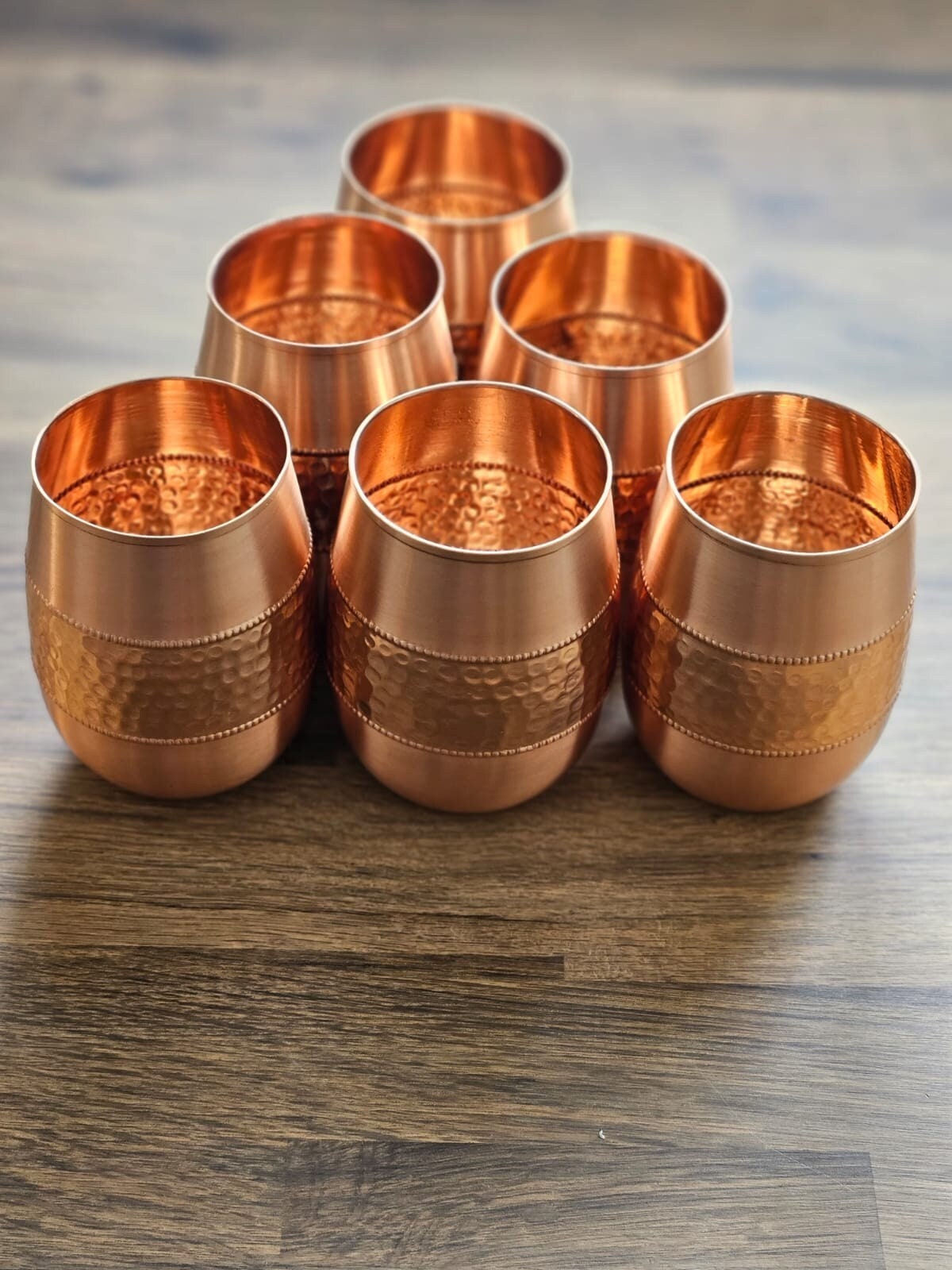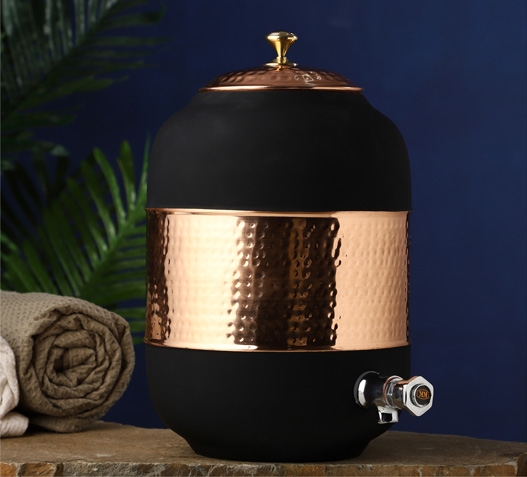Discover the Conveniences of Using Premium Copper Products for Home and Market
Discover the Conveniences of Using Premium Copper Products for Home and Market
Blog Article
Discovering the Diverse Applications of Copper Products in Modern Industries
From improving the efficiency of electric systems to playing a vital duty in sustainable power modern technologies, the adaptability of copper is evident. As markets significantly prioritize innovation and sustainability, the varied applications of copper warrant a closer assessment, specifically regarding their possible effect on future technical advancements and environmental methods.
Electric Applications of Copper
Copper is an important product in the electric industry, representing approximately 60% of the complete need for non-ferrous steels worldwide - Copper Products. Its exceptional electrical conductivity, which is almost two times that of light weight aluminum, makes it the preferred option for a vast array of electric applications. From wiring systems in industrial and property structures to high-voltage power transmission lines, copper ensures performance and integrity in power distribution
Along with electrical wiring, copper is integral to the manufacturing of electric parts such as motors, generators, and transformers. These parts take advantage of copper's thermal conductivity and malleability, crucial for warmth dissipation and effective performance. Furthermore, copper's resistance to deterioration boosts the lifespan and sturdiness of electrical systems, making it an affordable solution in the lengthy term.
The growth of sustainable energy resources, such as solar and wind power, has better boosted the demand for copper in electric applications. As industries shift towards lasting energy remedies, copper's role comes to be a lot more important. In general, the versatility and performance features of copper strengthen its status as a keystone material within the electrical field, driving technology and efficiency throughout numerous applications.
Plumbing and Piping Solutions
In contemporary plumbing systems, the selection of materials substantially impacts both performance and long life. Copper has become a favored alternative due to its distinct residential properties, including deterioration resistance and antimicrobial characteristics. These characteristics make sure that copper piping continues to be resilient and secure for delivering safe and clean water, a crucial consideration in residential and industrial applications.
One of the crucial benefits of copper in pipes is its capability to stand up to high temperature levels and stress, making it ideal for a selection of applications, from hot water systems to home heating and cooling networks. Furthermore, copper's flexibility permits much easier setup in complicated piping designs, minimizing the danger of failings and leakages.
One more noteworthy advantage is copper's long life-span, often going beyond half a century with correct upkeep. This long life not only minimizes replacement prices yet likewise adds to sustainable techniques by lowering waste. Copper's recyclability aligns with modern-day ecological standards, promoting a round economic situation within the pipes market.
Copper in Renewable Energy
The flexibility of copper extends past plumbing applications, playing an important role in the renewable resource industry. Its excellent electrical and thermal conductivity makes it a crucial product in the production and circulation of sustainable power resources, especially solar and wind power. In solar panels, copper is made use of in solar batteries and wiring, promoting read here efficient energy conversion and transmission. Its resistance to deterioration guarantees durable performance, which is vital for optimizing energy outcome over time.

Furthermore, as the global demand for electrical cars (EVs) boosts, copper's role in battery systems and charging infrastructure becomes also more significant. The product's view publisher site capacity to carry out power successfully is integral to the performance of EV batteries, boosting variety and charging speed.
Copper's Duty in Electronics
Electronic devices producing relies greatly on copper's exceptional residential or commercial properties, particularly its high electrical conductivity and thermal efficiency. These features make copper an excellent option for a variety of digital components, consisting of ports, circuit boards, and circuitry. The metal's capability to successfully transmit electric signals makes sure minimal power loss, which is important in high-performance electronic devices.
In addition, copper's thermal conductivity plays a considerable role in warm dissipation, protecting delicate parts from overheating. This is specifically essential in modern-day electronics, where portable designs lead to enhanced warmth generation. Copper is additionally favored for its pliability and ductility, enabling it to be easily shaped right into intricate styles that fulfill the demands of innovative digital applications.
With the rise of consumer electronic devices, telecommunications, and electrical automobiles, the need for copper in the electronic devices sector remains to grow. As advancements in modern technology advance, copper remains indispensable to achieving higher efficiency and integrity in digital products. Its recyclability additionally boosts its appeal, as producers seek lasting solutions without jeopardizing top quality. Hence, copper remains a keystone material in the ever-expanding area of electronic devices.
Cutting-edge Makes Use Of in Production

One remarkable application is in additive production, where copper-based materials are employed in 3D printing processes. This enables the development of complex geometries and light-weight components, specifically in the aerospace this article and automobile fields. Furthermore, copper's thermal conductivity makes it an ideal option for heat exchangers, improving efficiency in commercial air conditioning systems.
Furthermore, the surge of wise production has seen the consolidation of copper in IoT gadgets, where its conductive capacities support advanced picking up innovations. In the world of renewable resource, copper is essential in the manufacturing of solar panels and wind generators, facilitating a lot more effective energy conversion and circulation.
As industries aim for sustainability and technology, copper's versatility and performance remain to place it as an essential material, driving developments in production and adding to the growth of smarter, more effective items.
Conclusion
The important function of copper in renewable energy and its vital feature in electronics underscore its importance in progressing lasting methods. Jointly, these applications illustrate copper's critical payment to technical progress and industrial performance in contemporary society.
From improving the efficiency of electric systems to playing a critical function in renewable power modern technologies, the adaptability of copper is apparent. As sectors significantly prioritize advancement and sustainability, the diverse applications of copper necessitate a closer exam, specifically concerning their potential impact on future ecological techniques and technical advancements.
The development of eco-friendly energy resources, such as solar and wind power, has better enhanced the need for copper in electric applications. On the whole, the flexibility and efficiency attributes of copper strengthen its condition as a keystone material within the electrical industry, driving technology and efficiency throughout numerous applications.
The flexibility of copper expands beyond plumbing applications, playing an important duty in the renewable energy market.
Report this page